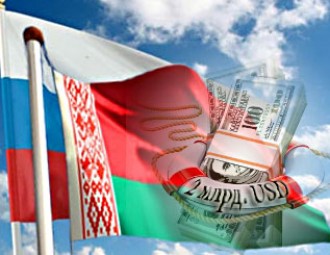Stanislau Bahdankevich: EFSD loan will be fully spent to pay off debts

However, it won’t be possible to pay off all debts with the use of one loan; Belarus will have to look for additional sources of acquittance.
The board of the Eurasian Fund for Stabilization and Development (EFSD) has approved a loan of $2 billion for Belarus, the press service of the Eurasian Development Bank.
The loan will be provided in seven installments in the period between 2016 and 2018. Each of the installments will have to be repaid within 10 years and will carry low interest rates for the first 5 years.
The first tranche of $500 million is expected to be transferred to Belarus in the next few days, the press office noted.
According to the EFSD website, the other six tranches will be provided after Belarus has completed certain conditions. In particular, there are plans to provide two tranches in 2016, three tranches in 2017 and one tranche in 2018.
In 2016 Belarus will have to repay a total of about $3-4 billion of debts. Clearly, $500 million won’t be enough to pay off debts. Where will the official Minsk be seeking money?
The former head of the National Bank Stanislau Bahdankevich answered the questions of the “EuroBelarus” Information Service.
- The loan will help to pay off foreign debt. $500 million won’t be enough to pay off all the debt repayments; we need more. The EFSD loan will be fully spent to pay off previous debts.
- Where should we look for the money to pay off the remaining debt?
- If there is a positive balance of foreign trade, it can be directed to repay debts; after that – use the gold and foreign currency reserves and loans from other sources. For example, bill of debts are becoming popular in Belarus: the authorities urge banks, who have currency, to "voluntarily" buy bill of debts and to direct those funds to pay off foreign debt.
The National Bank can purchase some currency at the Belarusian Currency and Stock Exchange; given that the Belarusian ruble has strengthened its position in recent days, Ministry of Finance can afford buying $100-200 million.
Apparently, there are ongoing negotiations with the lenders to ask them not insist on immediate payment. But these are behind-the-scenes talks.
The situation is very bad, but the government consists of experts; so let’s hope that they will do everything that is necessary to prevent a default. And non-payment of the debt means default.
- Why did the EFSD postpone the allocation of the loan?
- I believe that Russia itself has no money – it looks like Russia’s main reason. Russia has used its reserves, and, according to the Minister of Finance, the reserves will only be enough for 2016.
And the second reason is that the negotiations about reforming the Belarus’ economy are going on. Eurasian Bank, just as the International Monetary Fund, puts forward certain requirements to the Belarusian authorities – reforms. It looks like the negotiations have been postponed, all the more so because Belarus hasn’t fulfilled all the terms of the previous tranche.
- What prospects does the official Minsk have to obtain the IMF loan?
- It’s hard to say. If the position of the head of state – no reforms – is solid, the IMF must respond: no loans. Perhaps, the president will change his position; in this case the allocation of an additional loan is possible.
- How much will we have to spend in order to pay off the external debt in 2016?
- The Minister of Finance determined the amount of the debt including the debt service at $3.3 billion. But we should bear in mind that it is necessary to repay commercial debts, too: state-owned companies are also a part of the state. So on top of another have to throw a billion dollars.
- Thus, all the harshness of paying off public debts will rest on the shoulders of the population, won’t it?
- Journalists asked me if felt the reduction of cost of utility services. The President reduced the cost of utilities by 170 thousand Belarusian rubles. But in any case, my pension isn’t growing, whereas utility tariffs have grown. The retiree Bahdankevich has become poorer, despite the recalculation of utility payments.
If the government will have to pay off debts at any price, they might as well use the money from the state budget. We will just become poorer. While debts amount to $3 billion, they can always be paid off at the expense of people, inflation, and devaluation. However, such path leads to the impoverishment of the Belarusan citizens.
-
03.01
-
07.10
-
22.09
-
17.08
-
12.08
-
30.09










































